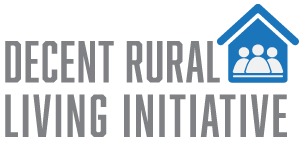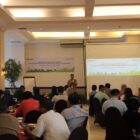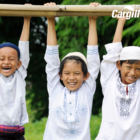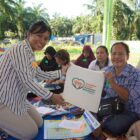The Importance of Education in Safeguarding Children’s Rights
Child labour is an issue that exists within the agriculture sector, especially in rural underdeveloped regions. However, preventing child labour is not just about stopping the employment of children – it is very much linked to the overall safeguarding of the child. Recognizing this, and as part of our partnership with Verite1 on improving our internal human and labour rights efforts, Wilmar developed and launched our Child Protection Policy in 2017, which superceded our 2007 policy on no child labour.
Since 2017, we have brought our suppliers to the table to discuss child protection and relevant human rights issues, through collaborations with Earthworm Foundation (previously The Forest Trust)2 and Business for Social Responsibility (BSR)3. One specific outcome from these engagements with suppliers is that there is a pressing need for more guidance materials, focussing on practical implementation. To help address this, in 2019 we have partnered again with BSR togther with a few palm oil buyers to develop a ‘Child Protection and Safeguarding Implementation Manual’ as well as a series of capacity building workshops to enable suppliers to learn, discuss and implement pragmatic measures to strengthen the rights and protection of children4. We expect to be able to launch the manual as a publicly available document before the end of 2020.
Providing access to education is a key component of ensuring child protection and the safeguarding of their rights. Education is a powerful deterrent to child labour, and it also helps break the cycle of poverty. The ILO has consistently reported that children with no access to education are more likely to be involved in an exploitative and dangerous labour market5. It is for this reason that a key tenant of our Child Protection Policy is to provide all children of our staff and workers with the best possible opportunity to access primary and secondary education. Our workers have over the years consistently fed back to us that the provision of education for their children is one of the biggest deciding factors influencing their decision to choose to work with Wilmar.
1 https://ir-media.wilmar-international.com/app/uploads/2018/07/8.Wilmar-and-Verit%C3%A9-Confront-Systemic-Labour-Issues-in-the- Indonesian-Palm-Oil-Industry.pdf
4 https://www.wilmar-international.com/docs/default-source/default-document-library/sustainability/news-release-17-june-19-protecting-the- rights-of-children-living-in-plantations.pdf
5 https://www.ilo.org/ipec/Action/Education/ChildlabourandEducationforAll/lang–en/index.htm
Safeguarding Children’s Rights to Education in Times of Uncertainty
Since the Covid-19 pandemic, we have seen schools across the globe close, and many lessons moving online. In many countries globally, we see school children moving from classrooms to virtual classrooms. However for those children in oil palm plantations – trying to maintain education access in these times of mass school closures is more difficult than most. As of 1st June 2020, school closures are affecting more than 9,000 children of school going age who live in our estates in Indonesia, Ghana, Malaysia, and Nigeria. This is a case study of how Covid-19 has affected schools attended by children of Wilmar’s workers in Malaysia.
In Malaysia, Wilmar have estate operations in the Borneon states of Sabah and Sarawak. In these states, the concerns with regard to child protection in oil palm estates take on an added complexity because of the added immigration restrictions on foreign nationals and their children6. Here the majority of our workers are from Indonesia, and their children attend what are effectively private schools, that are run jointly between Wilmar and the NGO Humana Child Aid Society Sabah, for the Humana primary schools, and Wilmar and the Indonesian consulate, for the Community Learning Centre (CLC) junior secondary schools.
The Malaysian announcement was quite clear – that all schools, including private schools, would be shut from 18 March 2020 until further notice. But what was not anticipated was the closure of borders to non Malaysians – this meant that in a few of our estates, our Indonesian national teachers, who had been travelling overseas or to different states, were not able to return to their schools. Where the teachers were in-situ – school plans and programmes are generally in place. The CLC has provided their teachers with official programmes during the school closure period. Lessons have also moved online.

The key challenge here is internet connectivity. Rural areas struggle with connectivity at the best of times, and many of our schools and their programmes were not designed with mobile connectivity in mind. Some of our schools (and even our estate offices for that matter) are located in areas with very bad mobile phone connectivity. Bandwith is also a challenge especially during the current period, where demand for internet connectivity is high. So solutions like video conferencing classrooms will not work.
6 For more information on complexities relating to children in oil palm estates in Sabah, please see the Earthworm Foundation guidance document ‘Services for Vulnerable Children in Sabah: What Businesses and Employees Need to Know’. The document also contains some useful background on the educational set up as described in this case study.
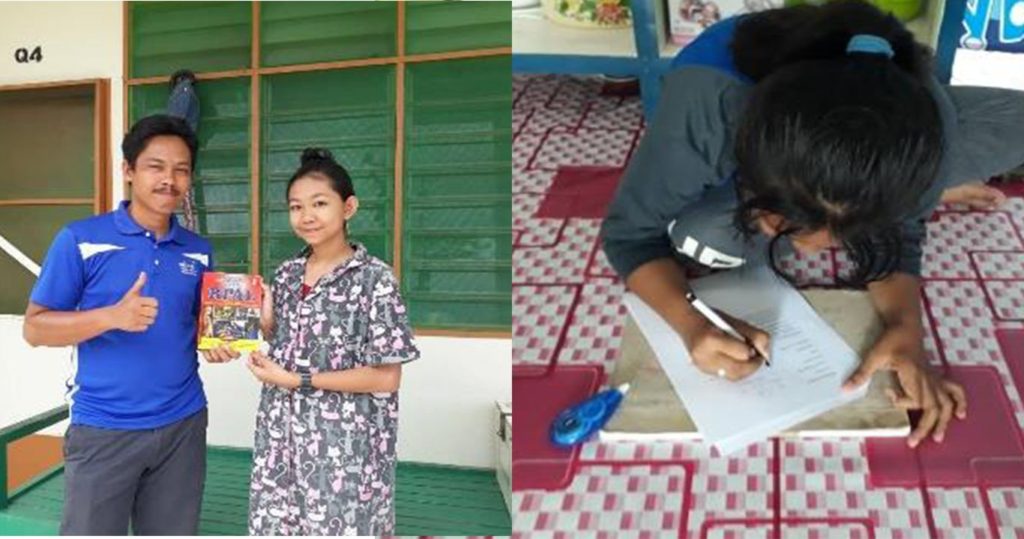
Added to the challenge is that very few of our students have access to laptops. In regular times our schools provide the children access to computers – but these are usually desktops and as they are located in the schools are non accessible during this period. However most children will have access to a basic smartphone.
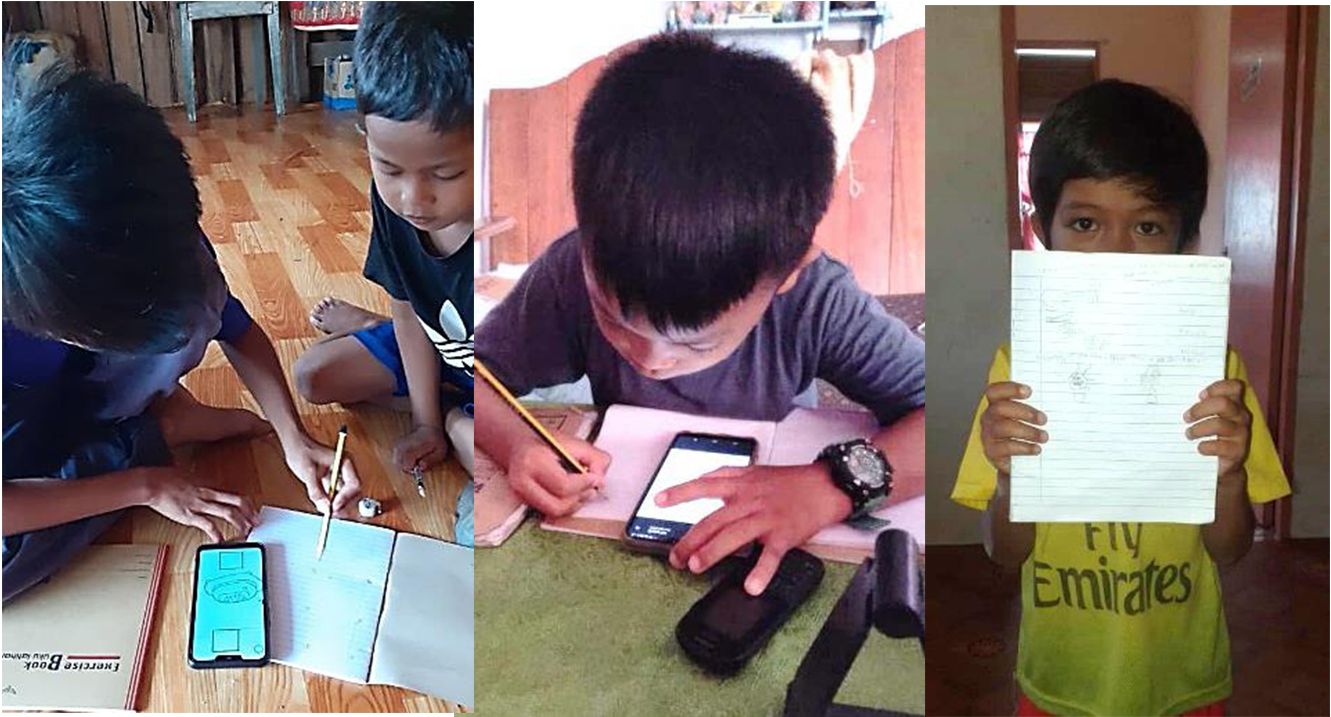
The CLC teachers and children have had to adapt to a workable online lesson plan – by relying on basic apps accessed on smartphones, where work is submitted. This approach is generally working well. The key is that the teacher must be on-site in the estate to check on the children and their work. With the Malaysian movement control in conditional phase since 18 May 2020, teachers are able to do walk-abouts to check in on the children. Messaging apps, notably Whatsapp, are also being used to provide immediate feedback to homework, and to inform parents on exams and other relevant issues. Whatsapp groups were being used actively by the governement schools that are near our estates.

In the CLCs, key exams are still running. However in our most remote estate we are facing the problem of lack of connectivity. This means that our children have to resort to taking the exams where they can get a phone signal – and this is in our plantation blocks on the highest hill! To ensure exams are more comfortably taken, we have arranged make-shift covered seats and tables – so the children will not need to resort to taking their exams on the ground.
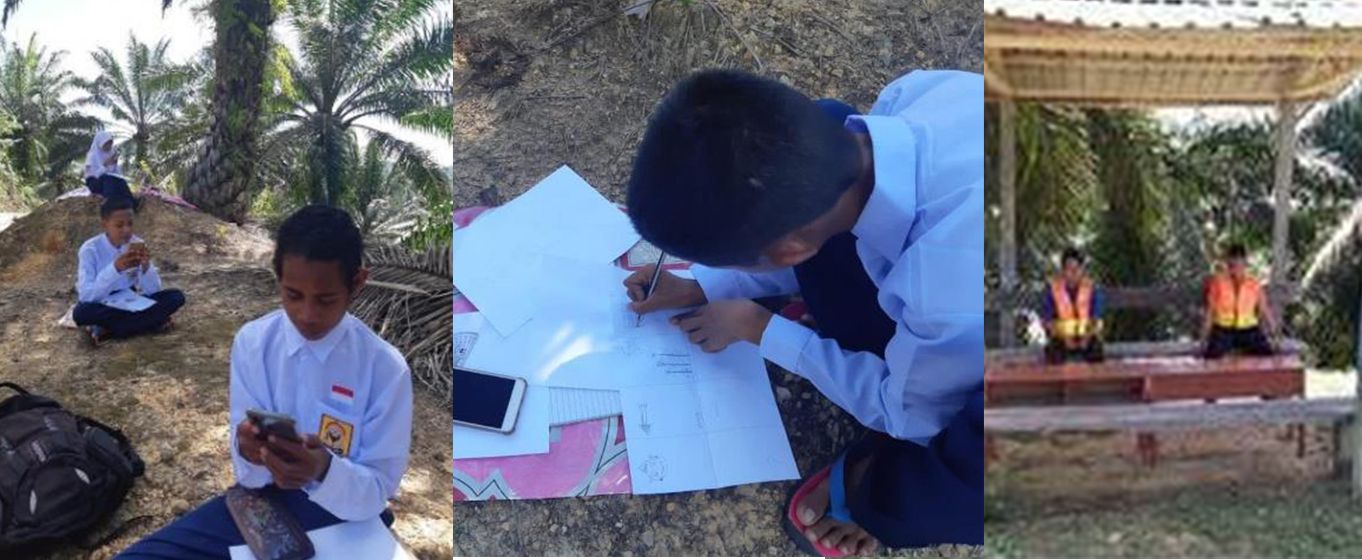
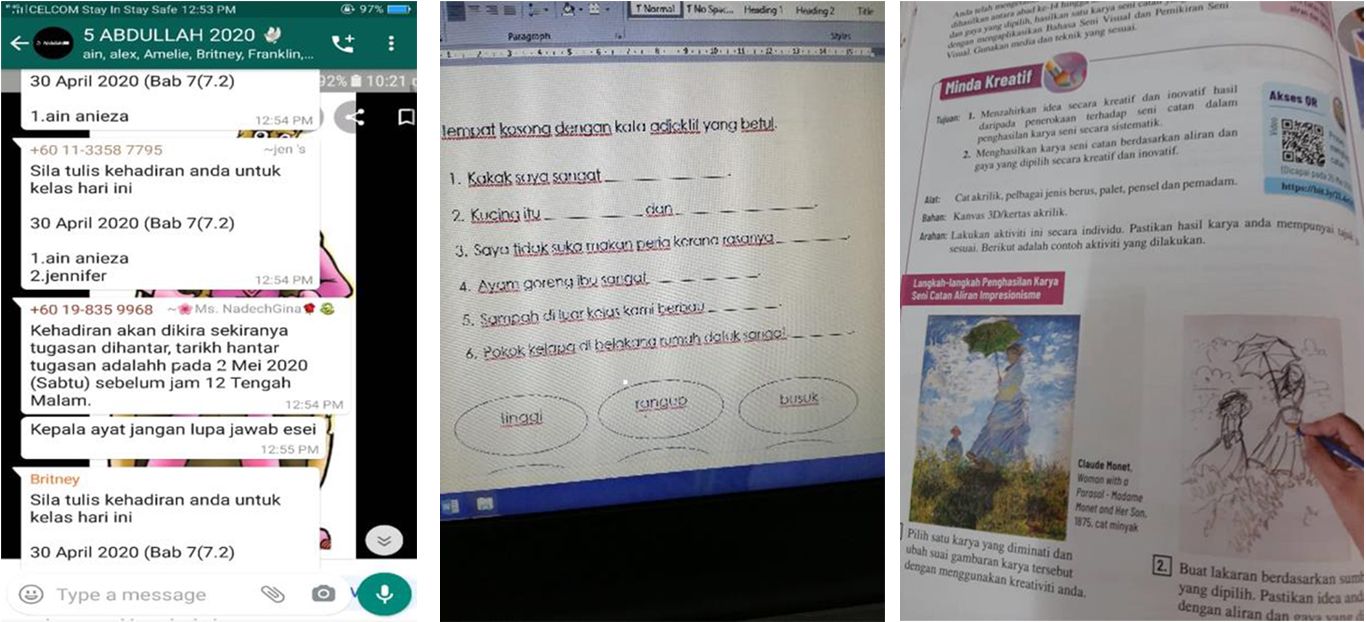
For the Humana primary schools, for the most part there has been no formal programme since schools shut. However since meeting with some teachers, Wilmar is now assisting with the printing of school materials and worksheets. Where the teachers are not on-site, and cannot pass the worksheets to the children directly, we have designed an “internal homework postal system” where the estate office, or members of the Women Committees will deliver worksheets to the children in turns. The worksheets are then collected and handed over to the teachers for checking.
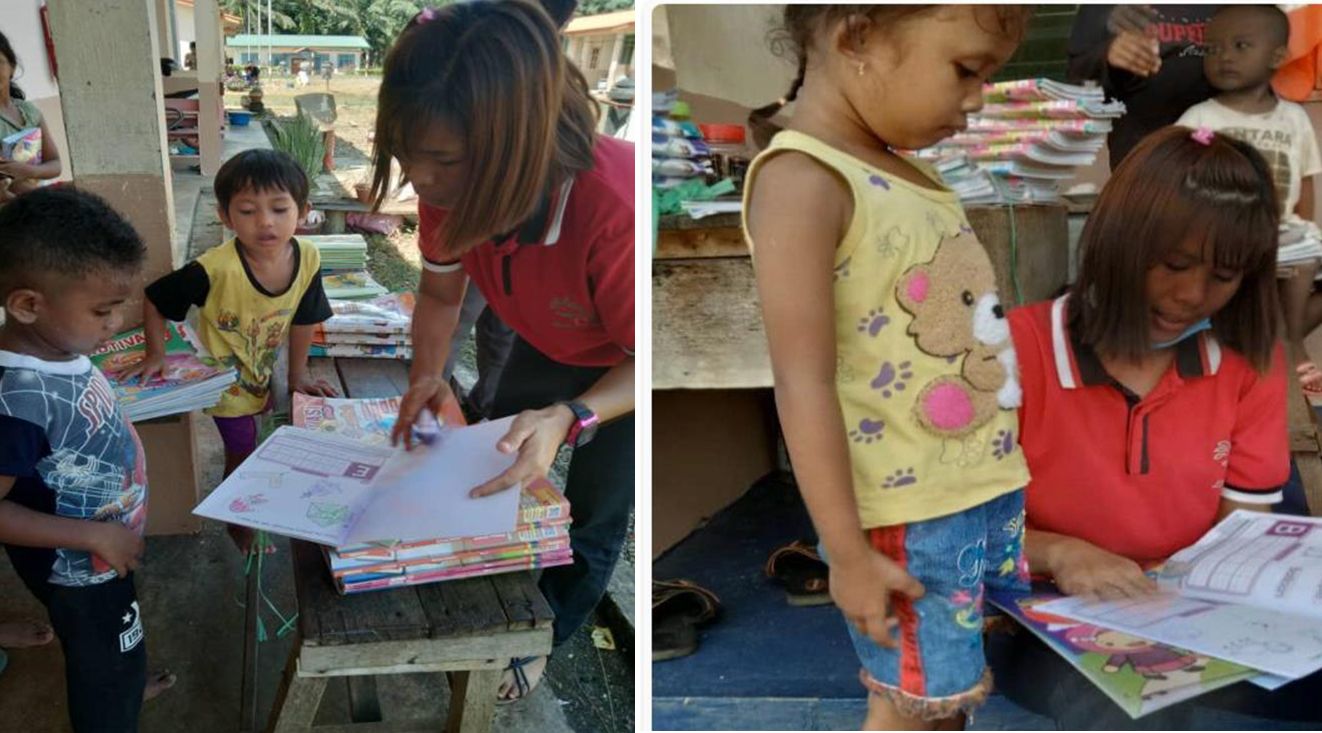
To help maintain education in our plantation estates, we have adopted the following guidelines during school closures in the Covid-19 pandemic period:
- Schools will remain shut and no classroom learning shall resume until government ruling or order is
- We will work with schools and teachers on developing new SOPs for when school lessons resume. Wilmar will assist with the provision of disinfectants, hand sanitizers, and other
- We are assisting teachers to facilitate access to homework, worksheets, and reading materials by either having printing it out at our office or providing readily available activity
- Learning materials will be distributed to children in our estates through cooperation with teachers, members of our women committees / women working groups, and our estate
- We will maintain open communications with teachers to help monitor the situation and providing assistance where we can, such as with homework checks and evaluations, as well as providing supplies and other help
- Where online programmes are in place, we will work with the teacher to help ensure maximum
To ensure that education continues to be accessible to children living in our estates during this period of school closures in the Covid-19 pandemic, coordination between the teacher and management is important. We are organizing regular meetings with our CLC and Humana teachers to find out what kind of suitable material can be provided for the children, and how best we can monitor progress of the children. These meetings are led by the General Manager or Assistant General Manager in the regions with the estate group managers, as this is an issue important to Wilmar management, and helps to show to the teachers how seriously we view education for the children living in our estates.
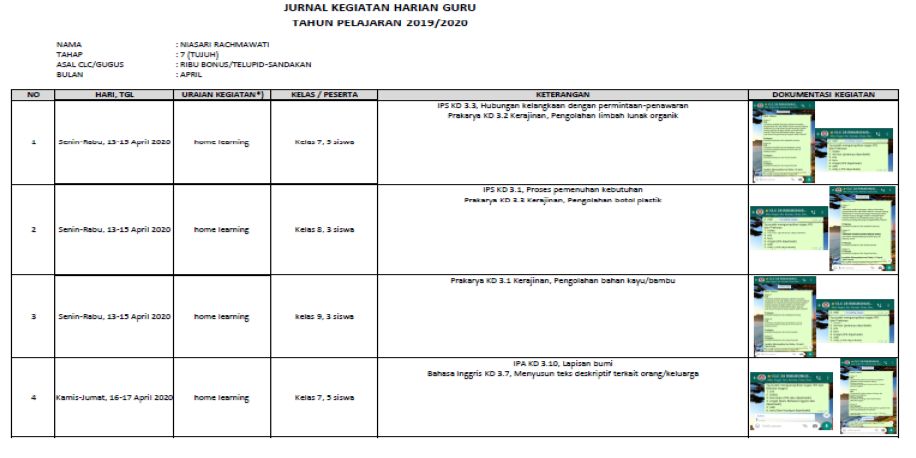
are shared with the estate management to report progress of educational activities happening on the ground.
The Covid-19 pandemic has highlighted that it is necessary to seek out-of-the-box solutions to help us deliver every child’s right to education in these circumstances, especially considering our rural locations and challenges to mobile and internet connectivity.
